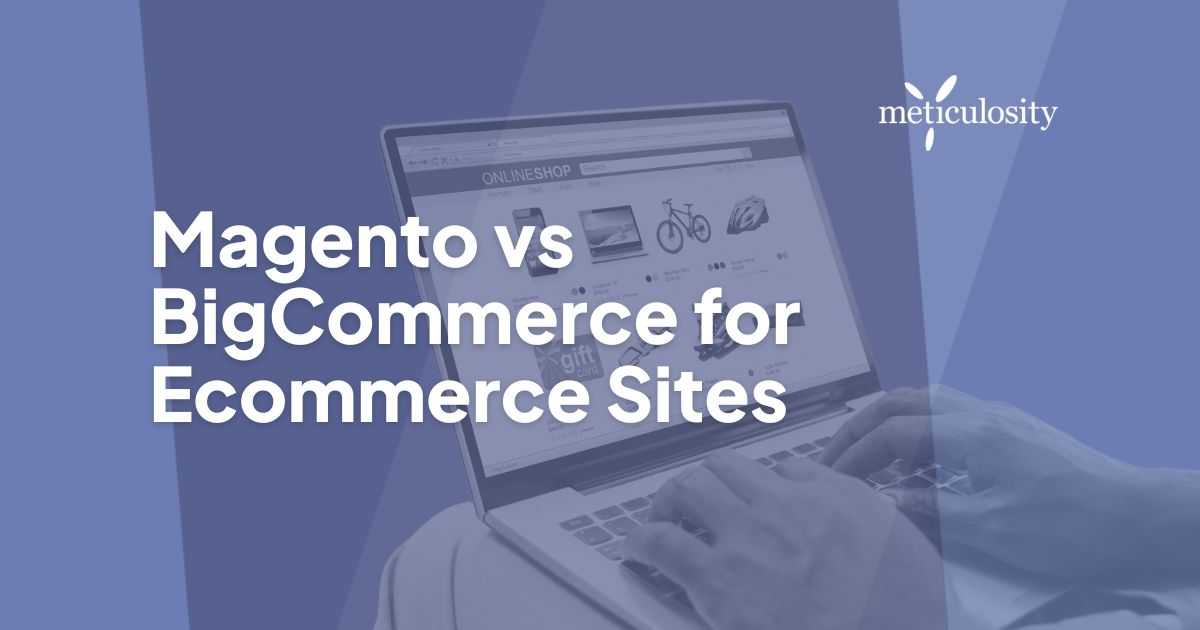The ecommerce platform market is not small, and it can be difficult to decide which shopping cart software best meets your needs. On the one hand, some platforms will be easy to navigate through and simple to understand, but this isn’t always enough. Others might feel overly complex, too expensive and with the rich amount of features it offers this may be too much for what you are looking for. It ultimately comes down to your business needs, growth plans for your company and budget.
Magento and BigCommerce are two big online store builders with good reputations. Both can help you to create processes and scale to your business size. When making your ecommerce platform decision, it's important to consider the functionalities, user experience, features and costs each offers. We have compared Magento and BigCommerce to help you choose the right platform for your online store.
Free Trial
Free trials are offered for both platforms. You may find that one interface is easier to navigate through than the other, or a piece of functionality in one of the platforms which you need is not available in the other.
Pricing Plans
For BigCommerce, the lowest, standard option, starts at $29 per month and ranges up to the Enterprise version which includes features such as priority support, express routing and premium account services. It is important to remember that lower price plans come with limited features, for example, the standard option excludes features such as an abandoned cart saver, fraud monitoring and product filtering.
The Magento Community (open source) platform is free to use and perfect for experimenting and learning how to design and build your store from scratch. All you can do is download the software from the official Magento website, install it on your hosting account and then you can start configuring and building your website. You have access to a free community forum, a range of templates and an app store and the only costs you need to carry is a website hosting fee.
Magento Commerce, better known as the Enterprise-level platform also offers different pricing plan options. Magento Commerce Starter begins at $2000 per month and is recommended for smaller merchants who are just starting their online journey. Magento Commerce Pro starts at $3417 per month and is a fit for larger corporations with large product catalogues, greater business complexity and a high volume of orders.
Functionality
Both platforms will meet your basic ecommerce functionality needs. You can manage products, conduct email marketing, create checkout pages, install payment gateways and design a webstore theme. You need to pay attention to your unique business needs and identify those special characteristics you are looking for when designing your store.
Magento is one of the most versatile and flexible platforms with many extensions and themes. Magento’s customizability is one of its major advantages over competitors. The Magento platform helps to design your website that fits your brand. You have full control over the website design experience and you can update it whenever you need to.
BigCommerce is more suited to beginners or individuals who want a “do it yourself” option, and are prepared to sacrifice built-in customization options. It is still customizable, but at the end your website will look more like a modified BigCommerce ecommerce site than your unique store.
Ease of Use
BigCommerce is an easy-to-use ecommerce platform. The different store management features are simple to understand and therefore no prior knowledge is needed to master the software and build a successful shopping cart.
A Magento website takes a while to customize according to your needs and specifics. Development and design skills are required to use the power of this platform to its full extent, but with the right knowledge and the right developers, Magento is the perfect fit for your business.
Conclusion
The BigCommerce platform is easier for beginners to navigate through and manage because of its simpler interface. On the other hand, Magento requires experience, but the learning is worth it. Both platforms have advantages, but it mainly depends on your company’s requirements, size and day-to-day features. Also, your experience in the ecommerce field plays an important tole when deciding which platform to go for. If you are looking for an enterprise solution, one with extreme functionality and features to take your online store to the next level of ecommerce, Magento is your best bet. If you are a growing brand, start-up company or a small to mid-level business owner, BigCommerce can help you to successfully move online.
Meticulosity is a certified Magento and BigCommerce solutions partner, and we can help you decide on the right platform for your online store. We have the skills, expertise, and workforce which will help you to gain a competitive advantage. Call us today for a free consultation.







